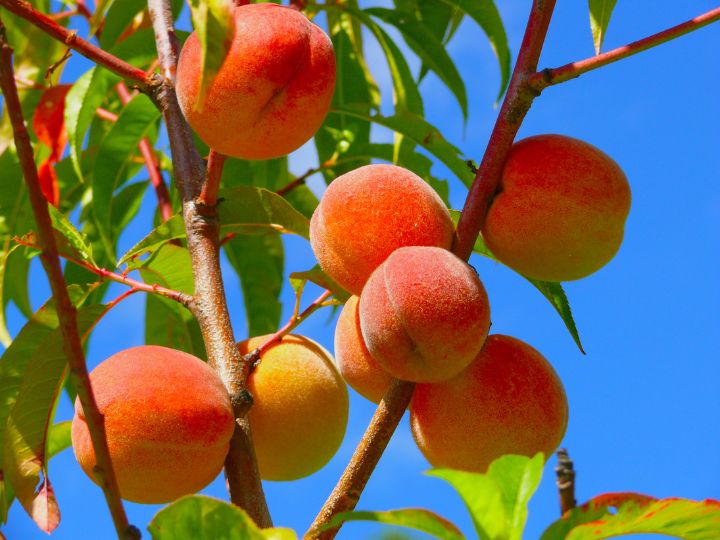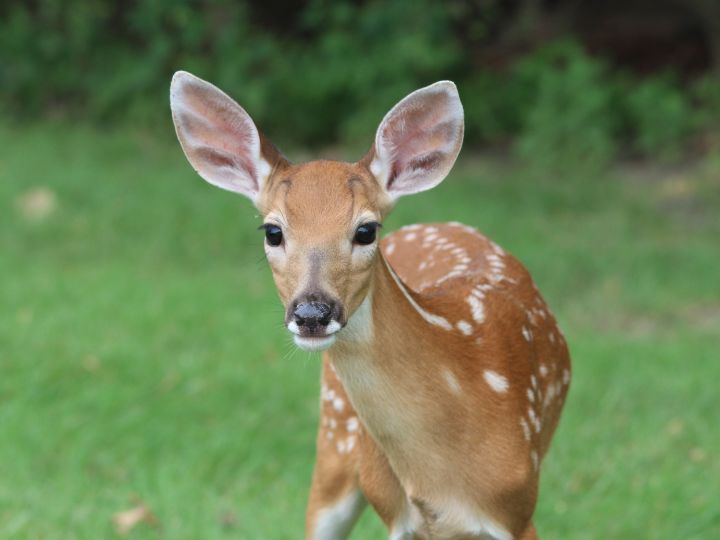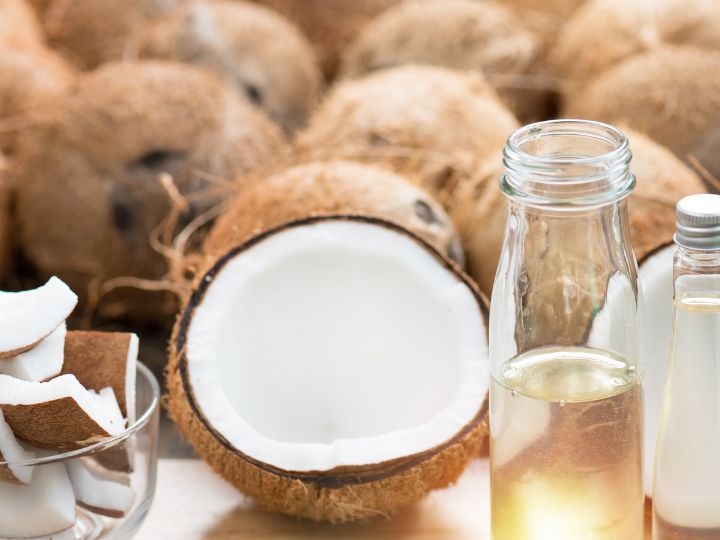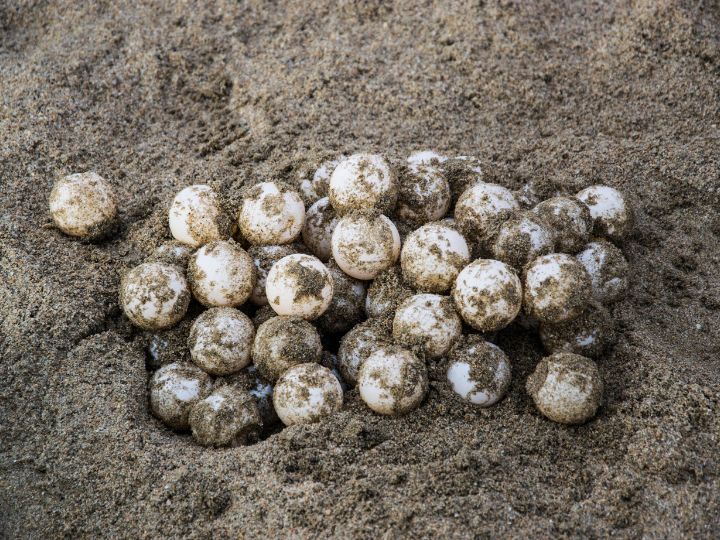Deer, often known for their ability to consume a wide variety of foliage, also enjoy feasting on fruits when available. As a result, people who live near deer habitats or have fruit trees in their gardens may often wonder which fruits are safe for deer to consume. One such fruit that comes to mind is the peach, loved for its sweet, juicy, and nutritious contents by humans and animals alike.
When it comes to deer eating peaches, the answer is yes – deer can safely consume this fruit. In fact, peaches provide certain benefits to these animals due to their vitamin, mineral, and water content. However, it is important to consider the possible impact of deer consuming peaches in large quantities, as it might have consequences for both the deer and the environment.
While peaches are a delicious treat for deer, they should not become the primary component of their diet. Too many peaches can upset the natural balance in their systems and potentially cause health issues over time. Additionally, deer feeding on peach trees may cause damage to gardens or orchards and become a concern for property owners.
Deer Diets
General Eating Habits
Deer are herbivorous mammals, primarily consuming leaves, grasses, and other plant-based materials. They have a four-chambered stomach which allows them to efficiently breakdown and obtain nutrients from cellulose, a component found in many plants.
Deer usually feed during dawn and dusk, taking advantage of these periods when they are less visible to predators. Their feeding habits are adaptable, as deer have been observed to change their diets based on seasonal food availability.
Preferred Foods
Some of the favorite foods of deer include:
- Grasses and Leaves: Deer usually prefer to eat fresh, young, and tender grasses, which provide a high level of nutrition. They also eat leaves, particularly of deciduous trees.
- Forbs: Forbs, non-woody flowering plants, are a significant part of a deer’s diet during spring and summer months. Examples of forbs consumed include dandelions, clover, and asters.
- Mast: The term “mast” refers to fruits, berries, and nuts produced by shrubs and trees. Deer can eat a wide variety of fruits, such as apples, grapes, and persimmons. They also consume nuts like acorns and beechnuts. These are particularly important during the fall months.
- Agricultural crops: In some cases, deer consume agricultural crops when they are available. Examples include soybeans, corn, wheat, and alfalfa.
Regarding the question of whether deer can eat peaches, this fruit could be considered within their food preferences since they are known to consume a wide range of fruits and soft mast, but it should not be assumed that all deer will actively seek out peaches. However, if they come across them, they might consume them.
Peaches as Deer Food
Nutritional Value of Peaches
Peaches are a good source of vitamins and minerals, containing essential nutrients such as vitamin A, vitamin C, potassium, and dietary fiber. While not specifically tailored to meet the nutritional requirements of deer, peaches can provide some valuable nutrients for them. However, they should not be considered a primary food source for deer, as their natural diet consists mainly of leaves, twigs, and other plant material.
- Vitamin A: Important for vision and immune function
- Vitamin C: Essential for tissue repair and growth
- Potassium: Crucial for maintaining proper fluid balance and nerve function
- Dietary Fiber: Aids in digestion and overall gut health

Image Credit: Canva
Deer Attraction to Peaches
Deer may be drawn to peaches due to their natural sweetness and aroma. The soft texture of the fruit is also easy for deer to consume. In some cases, deer may be attracted to peach trees in yards or orchards, leading to damage to the trees and fruit. It is important to note that while deer may enjoy consuming peaches, they should not be encouraged to do so in residential or agricultural areas, as this can lead to conflicts between deer and humans.
To deter deer from peach trees or orchards, consider implementing the following strategies:
- Fencing: Erect sturdy, tall fences around the area to prevent deer from entering
- Repellents: Use deer repellents, such as specific sprays or granules, to deter them from the area
- Plant other deer-resistant species: Intersperse less attractive plants among the peach trees, which can potentially discourage deer from approaching
Remember that deer are opportunistic feeders and may consume peaches if they come across them, but offering a variety of natural food sources within their habitat is the best way to support their overall health and well-being.
Possible Risks of Peaches to Deer
Digestive Issues
Deer have a specialized digestive system designed to break down plant matter like leaves, twigs, and grass. Introducing peaches, a fruit high in sugar and fiber, can cause potential upset to their digestion. Some possible effects on deer’s digestive system are:
- Bloating: Excess gas produced due to fermentation of peach may cause discomfort and bloating.
- Diarrhea: High sugar content may lead to loose or watery stools, impacting hydration and overall health.
- Disruption of gut microbes: The imbalance in nutrients from peaches may alter the balance of essential gut bacteria required for proper digestion and overall health.
Dependency Risk
Feeding deer with peaches or other human food may result in dependency, leading to negative effects on their natural behaviors and habitat. Some risks include:
- Altered foraging habits: Deer may seek out human-provided food sources instead of their natural diet, ultimately affecting their ability to survive in the wild.
- Attraction to human areas: Deer drawn to residential or urban areas may experience conflicts with humans or pets, increasing the risk of accidents and disease transmission.
- Overpopulation: Providing abundant food sources like peaches may support larger deer populations than the ecosystem can sustain, leading to habitat degradation as well as lack of food and resources for future generations.
Preventing Deer From Feeding on Peach Trees
Physical Barriers
One effective way to protect peach trees from deer is to install physical barriers. Fences are a popular option, as they provide a clear boundary and deter deer from entering your property. For maximum protection, consider installing a fence that is at least 8 feet high. This will discourage most deer from attempting to jump over. Additionally, using electric fences can further deter deer due to the fear of receiving a mild shock.
Another physical barrier option is to use tree guards. These guards wrap around the trunk and lower branches of the peach tree, preventing deer from nibbling on the bark and leaves. Ensure that the tree guards are made of durable materials, such as plastic or metal, to withstand potential damage caused by the deer.
Non-Toxic Repellants
In addition to physical barriers, there are several non-toxic repellants that can help protect peach trees from deer. These repellants work by creating unpleasant smells or tastes that deter deer from feeding on the trees. Some non-toxic repellents to consider include:
- Blood meal: Sprinkle blood meal around the base of the tree and on the lower branches. The scent of blood can be off-putting to deer, discouraging them from feeding on the peach trees.
- Garlic or hot pepper spray: Mix a solution of water, garlic, and hot pepper, and then spray it on the leaves and branches of the peach tree. The strong smell and taste of both garlic and hot pepper will help keep deer away.
- Commercial deer repellents: These repellents can be purchased at garden stores and online. Always choose a product specifically designed for deer and follow the instructions carefully to ensure proper application and maximum effectiveness.
Implementing both physical barriers and non-toxic repellants increases the likelihood of successfully preventing deer from feeding on your peach trees.
Conclusion
Deer can indeed consume peaches, as these fruits provide a source of essential nutrients and vitamins. With their natural tendency to forage, deer may find peaches attractive, especially when other food sources are scarce. In moderation, peaches can be a healthy addition to their diet.
However, it is worth noting that excessive consumption of peacho or other fruits can lead to gastrointestinal disturbances and imbalances in a deer’s nutritional intake. As such, ensuring a balanced diet for wild deer remains crucial for their overall health and well-being.
Additionally, it is essential to recognize the potential negative impacts on agricultural lands and peach orchards when deer are drawn to these areas for food. Developing strategies to protect crops and minimize human-deer conflicts can lead to a more harmonious coexistence between humans, deer, and the environment.
Frequently Asked Questions
Becky is a fervent wildlife enthusiast and pet care expert with a diploma in canine nutrition. Her love for animals stretches beyond the domestic, embracing the wild tapestry of global fauna. With over a decade of experience in animal welfare, Becky lends her expertise to OutlandishOwl through insightful articles, captivating wildlife information, and invaluable guidance on pet nutrition. Her work embodies a deep commitment to understanding the intricate lives of animals and a passion for educating others on sustaining natural habitats. Becky's hands-on conservation efforts and her knack for translating complex dietary science into practical pet feeding tips make her an indispensable voice for creatures great and small.




